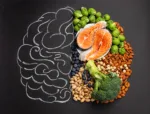Focusing on Nutrition in Recovery

While poor nutrition can lead to health problems, focusing on implementing healthy eating habits can improve your physical health and increase your sense of well-being. Good nutrition plays an important role in recovery from any chronic disease, including addiction.
In this guide, we’ll look at how addiction negatively impacts eating habits and overall health, and how eating a nutritious diet can improve your chances of successful recovery. We’ll offer practical and actionable dietary solutions to many challenges you might face in recovery.
The negative impact of addiction on nutrition
Addiction has numerous negative effects, including the way it impacts your diet. Certain substances can affect what you eat and how you think about food. For example, people who abuse stimulants commonly forego meals and instead snack on sugary foods, and those who abuse alcohol get most of their calories from the alcohol’s sugar content. The U.S. National Library of Medicine points out that people with an addiction often mistake hunger for drug cravings and may use more substances rather than eat.
Drugs and alcohol often reduce a desire for self-care, causing one to ignore their body’s need for proteins, vitamins and minerals; but an unhealthy diet makes recovery from a substance use disorder much more difficult. Therefore, it is the job of treatment centers to promote recovery by teaching clients how diet affects physical and mental health, and how good nutrition can improve the function of your body’s systems.
How good nutrition impacts your mood
Drug and alcohol abuse is detrimental to your mental health, often occurring in conjunction with mood disorders like depression and anxiety. But, a healthy diet in recovery can help stabilize your mood, help minimize symptoms of mood disorders and maintain a better sense of wellness overall.
Complex carbohydrates
Complex carbohydrates help promote the production of serotonin, a feel-good neurotransmitter that plays a crucial role in producing a stable mood. After eating complex carbohydrates, insulin is released to provide energy to the body’s cells. This triggers a release of tryptophan in the brain, an essential amino acid that is then synthesized into serotonin by folic acid and vitamins B6 and B12. Getting plenty of these nutrients can make a big difference in your mood during early recovery.
Good sources of complex carbohydrates include oat bran, oatmeal, long-grain brown rice and potatoes (with the skin). Foods high in tryptophan include bananas, sweet potatoes and brown rice. Folic acid is packed into spinach, broccoli, lentils and Brussels sprouts. Good sources of vitamin B6 include pistachios, tuna, bananas and lean pork—and vitamin B12 can be found in clams, eggs, red meat and yogurt.
Tyrosine
Tyrosine is an amino acid that’s essential for the production of dopamine, another feel-good neurotransmitter. Foods high in tyrosine help boost dopamine levels and include lamb, salmon, pumpkin seeds and wild rice.
Omega-3 fatty acids
Unhealthy fats found in fried foods, processed sweets and fatty meats promote inflammation and can lead to feelings of depression, according to a study. On the other hand, healthy fats like omega-3 and omega-6 fatty acids fight inflammation and improve the function of serotonin and dopamine receptors for higher levels in the brain. Walnuts, salmon, beef and Brussels sprouts are high in omega-3 fatty acids, while sunflower seeds, butter and chicken are good sources of omega-6 fatty acids.
Vitamin C
Vitamin C is a potent stress reliever that lowers the body’s levels of the stress hormone cortisol and reduces blood pressure associated with stress and anxiety. High levels of vitamin C are found in yellow peppers, kale, broccoli, oranges and tomatoes.
Managing cravings through nutrition
Cravings can be tough and coping with them is one of the most difficult aspects of recovery. Cravings may be triggered by low energy, dehydration, low blood sugar and even anxiety, but a healthy diet can help keep cravings at bay by correcting nutritional deficiencies and maintaining blood sugar throughout the day.
Foods to help you fight off cravings include:
- Whole grains metabolize slowly and help reduce sugar cravings associated with quitting certain substances
- Raw spinach contains L-glutamine, an amino acid that also reduces anxiety
- Peanut butter is a good source of protein, vitamin B and dietary fiber, which promotes dopamine production
- Salmon is packed with vitamin D, omega-3 fatty acids and protein, which improve cognitive function and reduce the intensity of cravings
By learning how or what to eat instead of giving in to cravings, you can enhance your resistance and boost your recovery overall.
Diet tips for recovery
It’s not easy to change your eating habits, especially if you’re looking at a complete change in the way you plan and prepare your food. But by starting small and intentionally, you can revamp your nutritional habits in no time.
Stay hydrated
Dehydration can intensify cravings, cause irritability, reduce your quality of sleep and make it difficult to concentrate, all of which can reduce your sense of well-being and contribute to a relapse.
Learn how to cook
Home-cooked meals are far healthier than eating out, and cooking meals from scratch with whole foods is far healthier than eating processed and prepared foods. Take a cooking class, read a book on cooking or begin experimenting with recipes. Cooking can be a great way to relax, and it’s a skill that will serve you well for a lifetime.
Eat meals on a regular schedule
This can lead to more regulated eating and less impulse and/or binge eating habits. Plus, it helps keep you from skipping meals which can lead to unhealthy snacking, weight gain and a reduced sense of well-being.
Choose healthy snacks
Opt for options like fruits, vegetables and nuts. Fatty, sugary snacks and highly processed foods are generally unhealthy and can cause weight gain and a variety of health problems.
Learn as much as you can about good nutrition
Understanding how nutrients fuel your body can enhance your motivation to eat well. Consider engaging the services of a dietitian to help you develop an eating plan that you’ll enjoy. Enjoying your meals is an important factor in developing healthy eating habits.
Nutrition and addiction recovery
The power of healthy habits in recovery can’t be overstated. Your food choices and eating habits will improve your physical and mental health and help to repair the damage done by addiction. Long-term recovery depends on long-term healthy habits, and developing those healthy habits today will promote successful recovery for a happy, healthy future.
To get in touch with a recovery center to get your healthy habits started, reach out to Silvermist Recovery today.






